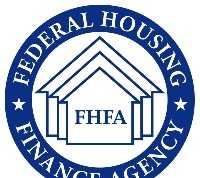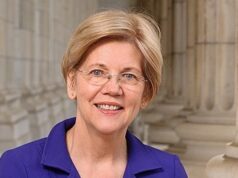Dallas/Fort Worth Back at #1 as Brooklyn, Orlando and Tampa Jump into the Top 10 for First Time in 40th Anniversary of Nation’s Leading Report for Real Estate Investors: PwC, ULI’s Emerging Trends in Real Estate® 2019
BOSTON (October 15, 2018) – (RealEstateRama) — Talent and economic diversity are the leading themes running through this year’s top cities in the latest Emerging Trends in Real Estate® 2019, released today by PwC US and the Urban Land Institute (ULI). Dallas/Fort Worth is back in the #1 spot due to its young workforce and high business start-up activity, while Brooklyn (#2), Orlando (#4) and Tampa (#10) make the top 10 for the first time in the report’s 40-year history.

Investors find Brooklyn attractive for its urban, industrial appeal and the trend of finding a “last mile” for e-commerce delivery and Orlando and Tampa/St. Petersburg for their demographic growth, friendly business climate and attractive cost structure. Raleigh-Durham (#3), Nashville (#5), Austin (#6) and Boston (#7) round out the list as investors follow the STEM (science, technology, engineering and math) jobs, projected to grow 73% faster than the broader job market through 2026, with annual wages more than double the average, in these tech heavy markets.
In its 40 years, Emerging Trends in Real Estate® has grown with the market it covers. From its early days examining the $1.2 billion institutional real estate investment market, ETRE has expanded to coverage of the $7.0 trillion marketplace analysing REITs, real estate private equity funds, commercial mortgage backed securities, mortgage debt funds and crowd sourced investments. “Over the past four decades we have seen an explosion in the reach of the real estate market. Once held only by institutional investors, real estate is now democratized through REITs,” notes Mitch Roschelle, PwC Partner and the report’s Co-Publisher. “Today individuals–foreign and domestic–can invest side-by-side, with the institutions, in everything from housing to complex debt transitions. This deep access to capital has propelled the market forward.”
“The key word for real estate’s future performance is transformation – in technology, in generational choices, and in a reconfiguration of preferences related to geography and property types,” said ULI Global Chief Executive Officer W. Edward Walter. “The market shift, which will continue to play out over the next several years, is being fueled by consumers and tenants changing the way they shop and live, what they demand of their spaces, and by new technologies that will enable real estate to be more flexible and responsive to users’ needs.”
The Top 10 Markets in Emerging Trends in Real Estate® 2019:
- Dallas/Fort Worth, TX
- Brooklyn, NY
- Raleigh-Durham, NC
- Orlando, FL
- Nashville, TN
- Austin, TX
- Boston, MA
- Denver, CO
- Charlotte, NC
- Tampa, FL
Top Trends from the Report Include:
Amenities Gone Wild: New office buildings and multifamily assets are going well-beyond the fitness center and recreational areas to include child and pet care, bike storage and even a “curated garden” growing fresh fruits and vegetables for residents.
Retail Space is Not Dead: The rumors of retail’s demise may have been exaggerated. With low prices, it’s a good time to look at retail space to repurpose to accommodate alternative uses such as urgent care medical facilities, health and fitness providers, restaurants, financial services and entertainment venues.
18-Hour Suburbs: The generation that drove the urbanization trend and 18-hour cities, may finally be ready to move to “the burbs.” As the oldest millennials reach their mid-30s, they are looking to buy homes that meet the right criteria with urban amenities such as walkable neighborhoods in proximity to shopping and entertainment along with green space and good schools.
Disrupters are Disrupting Real Estate: From package delivery to bike sharing to ride-hailing services, everything from lobbies to sidewalks to roads are more congested. This B2C activity is one of the forces behind “amenity creep” and an issue residential and commercial property investors need to watch closely.
ESG Practices Important to Investors: Sensitivity to environmental, social, governance (ESG) issues has increased for U.S. real estate regardless of the direction of national policy. Funds with an ESG investment plan in place could see an advantage in attracting capital especially from institutional and international investors as well as public REITs.
Last Mile Industrial Development Needed to Meet E-commerce Demands: With the expansion of e-commerce far from over, the need for facilities to accommodate a denser distribution network is acute and will only increase over time, especially infill opportunities, providing “last mile” break-bulk sites.
Easing into the Future: The challenge to real estate markets is a prospective slowdown in demand, varying across geography and property types. But slower growth does not mean there won’t be opportunities. Functional obsolescence in all kinds of space, the need for affordable housing and responses to technologies will all require new investment and development.
Now in its 40th year, Emerging Trends in Real Estate® is one of the most highly regarded annual industry outlooks for the real estate and land use industry. It includes interviews and survey responses from nearly 2,400 leading real estate experts, including investors, fund managers, developers, property companies, lenders, brokers, advisers and consultants.
About the Urban Land Institute
The Urban Land Institute is a nonprofit education and research institute supported by its members. Its mission is to provide leadership in the responsible use of land and in creating and sustaining thriving communities worldwide. Established in 1936, the institute has more than 42,000 members worldwide representing all aspects of land use and development disciplines. For more information, please visit uli.org or follow us on Twitter, Facebook,LinkedIn, and Instagram.
About PwC US
At PwC, our purpose is to build trust in society and solve important problems. PwC is a network of firms in 158 countries with more than 236,000 people who are committed to delivering quality in assurance, advisory and tax services. Find out more and tell us what matters to you by visiting us at www.pwc.com/US.

















